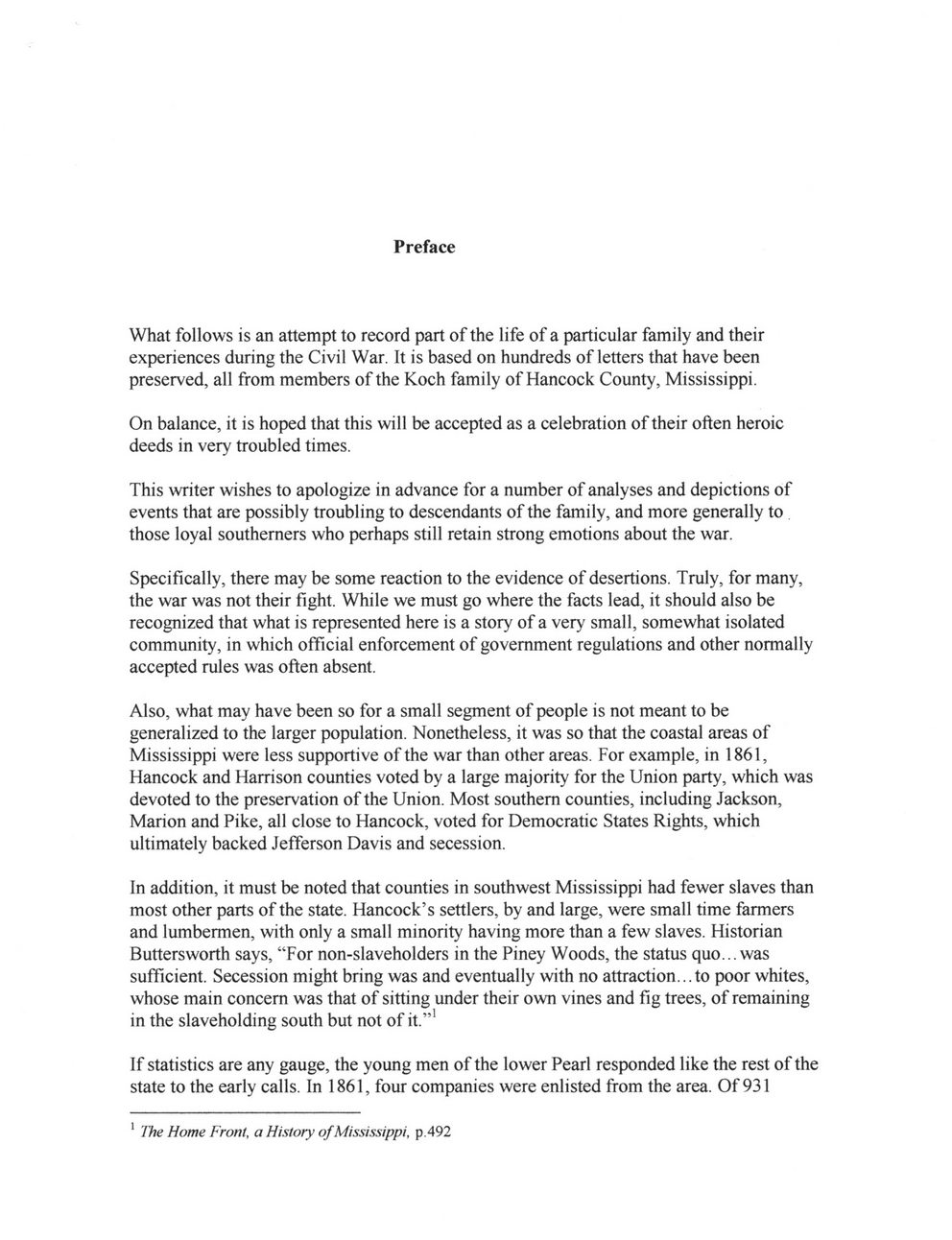This text was obtained via automated optical character recognition.
It has not been edited and may therefore contain several errors.
Preface What follows is an attempt to record part of the life of a particular family and their experiences during the Civil War. It is based on hundreds of letters that have been preserved, all from members of the Koch family of Hancock County, Mississippi. On balance, it is hoped that this will be accepted as a celebration of their often heroic deeds in very troubled times. This writer wishes to apologize in advance for a number of analyses and depictions of events that are possibly troubling to descendants of the family, and more generally to those loyal southerners who perhaps still retain strong emotions about the war. Specifically, there may be some reaction to the evidence of desertions. Truly, for many, the war was not their fight. While we must go where the facts lead, it should also be recognized that what is represented here is a story of a very small, somewhat isolated community, in which official enforcement of government regulations and other normally accepted rules was often absent. Also, what may have been so for a small segment of people is not meant to be generalized to the larger population. Nonetheless, it was so that the coastal areas of Mississippi were less supportive of the war than other areas. For example, in 1861, Hancock and Harrison counties voted by a large majority for the Union party, which was devoted to the preservation of the Union. Most southern counties, including Jackson, Marion and Pike, all close to Hancock, voted for Democratic States Rights, which ultimately backed Jefferson Davis and secession. In addition, it must be noted that counties in southwest Mississippi had fewer slaves than most other parts of the state. Hancock?s settlers, by and large, were small time farmers and lumbermen, with only a small minority having more than a few slaves. Historian Buttersworth says, ?For non-slaveholders in the Piney Woods, the status quo... was sufficient. Secession might bring was and eventually with no attraction...to poor whites, whose main concern was that of sitting under their own vines and fig trees, of remaining in the slaveholding south but not of it.?1 If statistics are any gauge, the young men of the lower Pearl responded like the rest of the state to the early calls. In 1861, four companies were enlisted from the area. Of 931 1 The Home Front, a History of Mississippi, p.492

Guerin 001